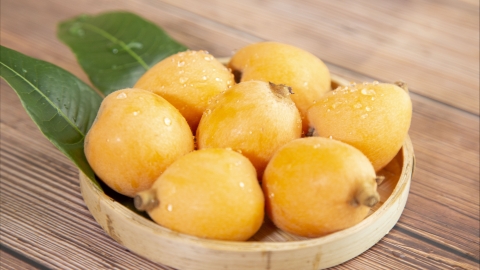Can patients with atrophic gastritis eat loquats?
Generally, patients with atrophic gastritis can eat loquats, but should consume them in moderation. Detailed analysis is as follows:

Loquats are cool in nature and rich in fruit acids, which may irritate the gastric mucosa and worsen inflammatory responses. However, moderate consumption of loquats may provide certain benefits for patients with atrophic gastritis. The vitamin C and dietary fiber contained in loquats can aid digestion and absorption, and their effects of moistening the lungs, relieving thirst, promoting qi circulation, and soothing the stomach may help alleviate symptoms such as loss of appetite and acid reflux. Patients should avoid consuming unripe fruits and loquat seeds, as these may cause poisoning or further irritate the gastrointestinal tract.
Loquats should not be consumed together with high-protein or high-calcium foods, as fruit acids may easily combine with calcium to form precipitates, affecting nutrient absorption. Individuals with spleen deficiency and diarrhea, as well as patients with diabetes, should consume loquats cautiously. The cool nature of loquats may worsen diarrhea in those with spleen deficiency, while diabetic patients need to limit their intake of loquats due to their high sugar content. Patients with atrophic gastritis are advised to prioritize mild and easily digestible foods. If stomach discomfort, pain, or worsening inflammation occurs after consuming loquats, consumption should be stopped immediately and medical advice should be sought.
Prior to consuming any fruits, patients with atrophic gastritis should make choices based on their individual conditions and follow medical advice. If discomfort occurs during consumption, it should be stopped immediately and a doctor should be consulted. At the same time, maintaining a healthy lifestyle and dietary habits are both important for controlling the condition and promoting recovery.







